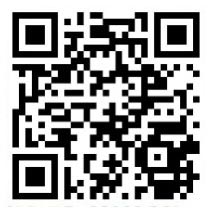雅思口语素材积累:元宵节
为了帮助大家高效备考雅思,爱思学雅思频道为大家带来雅思口语素材积累:元宵节,希望对大家雅思备考有所帮助。更多精彩尽请关注爱思学雅思频道!
The Lantern Festival falls on the 15th day of the 1st lunar month, usually in February or March in the Gregorian calendar. As early as the Western Han Dynasty (206 BC-AD 25), it had become a festival with great significance. This day's important activity is watching lanterns. Throughout the Han Dynasty (206 BC-AD 220), Buddhism flourished in China. One emperor heard that Buddhist monks would watch sarira, or remains from the cremation of Buddha's body, and light lanterns to worship Buddha on the 15th day of the 1st lunar month, so he ordered to light lanterns in the imperial palace and temples to show respect to Buddha on this day. Later, the Buddhist rite developed into a grand festival among common people and its influence expanded from the Central Plains to the whole of China.
每年农历的正月十五日,春节刚过,迎来的就是中国的传统节日--元宵节。元宵主要的活动就是看灯。东汉明帝时期,明帝提倡佛教,听说佛教有正月十五日僧人观佛舍利,点灯敬佛的做法,就命令这一天夜晚在皇宫和寺庙里点灯敬佛,令士族庶民都挂灯。以后这种佛教礼仪节日逐渐形成民间盛大的节日。该节经历了由宫廷到民间,由中原到全国的发展过程。
Till today, the lantern festival is still held each year around the country. Lanterns of various shapes and sizes are hung in the streets, attracting countless visitors. Children will hold self-made or bought lanterns to stroll with on the streets, extremely excited. "Guessing lantern riddles"is an essential part of the Festival. Lantern owners write riddles on a piece of paper and post them on the lanterns. If visitors have solutions to the riddles, they can pull the paper out and go to the lantern owners to check their answer. If they are right, they will get a little gift. The activity emerged during people's enjoyment of lanterns in the Song Dynasty (960-1279). As riddle guessing is interesting and full of wisdom, it has become popular among all social strata.
直到今天,元宵点灯的习俗仍然在中国的各地流传的,各式各样美丽的花灯在这一天都会点亮,孩子们提着自制的灯笼走街串巷,非常高兴。猜灯谜也是元宵节的一项重要活动,花灯的主人会将谜面写在灯笼上,挂在门口,如果有人可以猜中,就能得到小小的礼物。这项活动最早起源于宋朝,因为谜语能启迪智慧又饶有兴趣,所以流传过程中深受社会各阶层的欢迎。
People will eat yuanxiao, or rice dumplings, on this day, so it is also called the "Yuanxiao Festival."Yuanxiao also has another name, tangyuan. It is small dumpling balls made of glutinous rice flour with rose petals, sesame, bean paste, jujube paste, walnut meat, dried fruit, sugar and edible oil as filling. Tangyuan can be boiled, fried or steamed. It tastes sweet and delicious. What’s more, tangyuan in Chinese has a similar pronunciation with "tuanyuan”, meaning reunion. So people eat them to denote union, harmony and happiness for the family.
民间过元宵节吃元宵的习俗。元宵由糯米制成,或实心,或带馅。馅有豆沙、白糖、山楂、各类果料等,食用时煮、煎、蒸、炸皆可。起初,人们把这种食物叫“浮圆子”,后来又叫“汤团”或“汤圆”,这些名称“团圆”字音相近,取团圆之意,象征全家人团团圆圆,和睦幸福,人们也以此怀念离别的亲人,寄托了对未来生活的美好愿望。
In the daytime of the Festival, performances such as a dragon lantern dance, a lion dance, a land boat dance, a yangge dance, walking on stilts and beating drums while dancing will be staged. On the night, except for magnificent lanterns, fireworks form a beautiful scene. Most families spare some fireworks from the Spring Festival and let them off in the Lantern Festival. Some local governments will even organize a fireworks party. On the night when the first full moon enters the New Year, people become really intoxicated by the imposing fireworks and bright moon in the sky.
随着时间的推移,元宵节的活动越来越多,白天有耍龙灯、耍狮子、踩高跷、划旱船扭秧歌、打太平鼓等传统民俗表演。到了夜晚,除了五颜六色的美花灯之外,还有艳丽多姿的烟火。大多数家庭会在春节时留下一些烟花等到元宵节这天燃放,而一些地方政府也会举办烟花大会,当新年的第一个月圆之夜在盛大的烟火表演中来临时,人们都陶醉在这令人难忘了烟花与皎洁的明月中。
元宵节词汇
元宵节:festival of lanterns,lantern festival dumplings
元宵: the rice glue ball
灯谜:riddles written on lanterns
灯具:lamps and lanterns
灯花 snuff
灯笼裤 bloomers galligaskins knickers pantalettes plus fours
灯笼 lantern scaldfish
灯塔 beacon lighthouse pharos
灯语 lamp signal
灯油 kerosene lamp oil
灯心蜻蜓 damselfly
元宵节的由来
Lantern Festival
The 15th day of the 1st lunar month is the Chinese Lantern Festival because the first lunar month is called yuan-month and in the ancient times people called night Xiao. The 15th day is the first night to see a full moon. So the day is also called Yuan Xiao Festival in China.
According to the Chinese tradition, at the very beginning of a new year, when there is a bright full moon hanging in the sky, there should be thousands of colorful lanterns hung out for people to appreciate. At this time, people will try to solve the puzzles on the lanterns and eat yuanxiao (glutinous rice ball) and get all their families united in the joyful atmosphere.
各地元宵节习俗
河北省 永平府元宵节,有病的妇女群聚窑下,称“陶灸”。儿女交错度桥,称“度百厄”。也有人以纸裁剪为九条纸绳,信手打结以卜休咎,称“结羊肠”。又以十二个面盏贮油放入锅中蒸熟,以面盏积水之多寡来预卜该月的晴雨。静海县上元节以大馒头为节食。庆云县元宵节男子请五祖教拳棒,女子请紫姑卜休咎。
山东省 淄川县元宵节临水人家多放河灯。宁阳县元宵送灯至祖坟。博兴农村的元宵节有照灯的习俗。男孩子提着灯,绕枣树六圈,口念“嘟佬嘟佬,开花结枣”六遍,就能使枣树丰收。莒县男女老少于正月十六到野外踏青,称之“走老貌”,据说每年走一次可永保青春年少。
河南省 襄城县元宵吃馄饨汤,称之“团圆茶”,娘家接已嫁的女儿回家过节,郲县元宵庆灯时,老幼有病者,皆以火灸石龟。本地有河桥的,相率过桥。若无桥,则以木板搭数丈高之“天桥”,称为“走百病”。
陕西省 凤翔县于元宵节宴请女儿、女婿,称之“吃十五”。并送灯、送油,称之“添油”。〔江苏省〕武进县上元日绑缚芦苇成丈许之火炬,插于田间,称“照田财”,用来预卜早潦。火色白者为水,红者为旱。宜兴上元日,儿童戴鬼面具,屈脚振肩而跳,称之“跳鬼”。
浙江省 杭州民间传正月十五为上元天官赐福之辰,多斋素诵经,匍匐至吴山礼拜。海宁县元宵节以精致的菊花灯为最出名。上虞县少于元宵节晚上到戡恃月台上较量武艺。建德县人家有新娶媳妇的,于元宵节设酒祭床。
江西省 新建县民于元宵扫墓插竹为灯。万安县城各乡均于元宵节祀上元神舟。
湖北省 云梦县(今之江汉)老农夫于元宵夜持火炬偏照田圃,叫“照绝地蚕”。儿童则以田鼓迎神,以卜岁事。武昌的“弄龙”要一连三天。全村的男女老少都跟随龙灯到邻村赴宴,称为“龙换酒”。
湖南省 常德上元各家以椒为汤,加入韭菜儆果诸物款待客人,称为“时汤”。新田县游完龙灯后,将龙灯付之一炬,称为“送灾”。
四川省 四川元宵有“四偷”的习俗:“一偷汤圆二偷青,三偷檐灯四偷红。”除了偷青是为了强身外,其余皆为求子的习俗。开县有“对骂”的习俗。元宵节时人们搬板凳到户外去,将平日之怨气,尽皆骂出,被骂之人不得回骂。
福建省 泉州花灯别具特色,有香灯、纸折莲花灯、丝料宫灯、八结灯等等。邵武县元宵夜境内庙宇绕境迎香,称为“净街”。福建南部有元宵节两村儿童互掷石为戏的习俗。据说若不掷石,那个村子必定发生瘟疫。
广东省 新安县民有于去年生男者,皆于元宵夜庆灯。南雄闹花灯时,父母取龙灯上之龙须线给小儿系带,据说可保儿童无疾病。又取龙灯内残存的蜡烛照床下,据说可以产贵子。文昌县民元宵夜偷青时,偷中的以挨骂为吉祥之兆,偷不中者则以不挨骂为吉兆。
云南省 云龙县于元宵节前迎三崇神,沿街立棚祭祀。弥勒州元宵后一日燃香于桥,投石水中,再取水洗眼,据说可以去疾病。
以上就是关于“雅思口语素材积累:元宵节”的内容,更多精彩内容,请关注雅思频道!
新东方雅思,开年大吉,雅思冲七
新东方名师直播教你解题技能,助你备战雅思!













